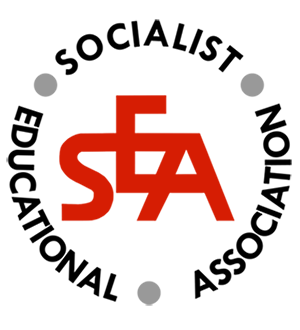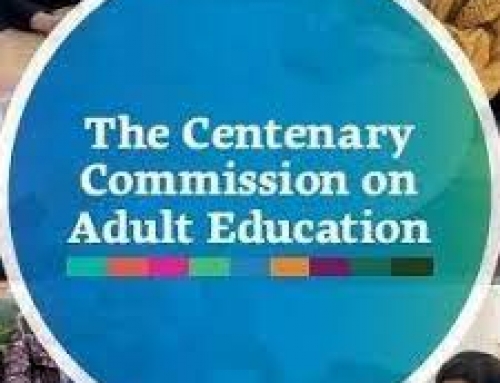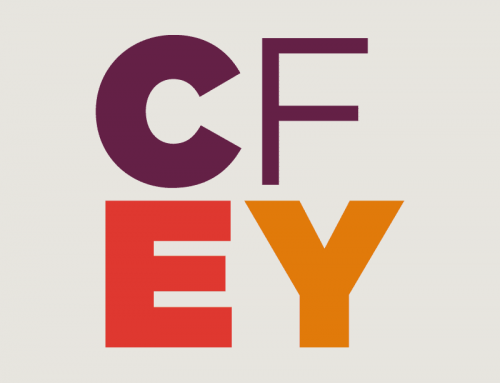Comprehensive Future is hosting a webinar on September 19th at 11.30am, ‘What Would a Socially Just Education System Look Like?’ In the lead up to the event we have asked several organisations to discuss what a socially just school system means to them, read the series of posts here. This blog post is by James Whiting, General Secretary of the Socialist Educational Association (SEA).
 Give Us Back Our Schools: Towards a Socially Just Schools System
Give Us Back Our Schools: Towards a Socially Just Schools System
The government have a cleverly worked out strategy. It has also developed the necessary mechanisms to implement it. Under the cloak of market choice, they are putting in place the exact opposite: a highly centralised, heavily monitored, authoritarian schools’ system where space for autonomy and innovation is very limited. The aims are clear. First, establishment notions of what is the greatest that ‘has been thought and said’ are passed down, whilst excluding alternative perspectives, thus closing the ‘cultural capital’ gap. Second, opportunities for pupils to think for themselves and contribute their own creativity will be limited. Third, the system will select those deemed worthy of a place in the establishment by implementing a series of academic examinations and tests in which grades are rationed.
Gove’s initial steps down this road were to redesign the National Curriculum the Tory with factual knowledge taking pride of place. Also, what knowledge would be taught was highly political and subject to ministerial whim. For example, post war modern history was to start in 1951 rather than 1945 so that the achievements of Atlee’s Labour government were omitted. Lucy Powell, shadow education secretary at the time, said , ‘Under the Tories we’ve seen parts of the curriculum personally drafted by the education secretary and then circulated for sign-off amongst cabinet ministers, each making a case for their own pet project to be included.’
Alongside curriculum reform came structural changes sold to the public as the market driving up standards and promoting variety:- ‘My view is we should encourage innovation and choice by ensuring that as many schools as possible are academies or free schools,’ said Gove in 2011.
As Multi-Academies Trusts (MATS) grow in size the myth of more choice and innovation is becoming apparent. The freedom to design their own curriculum is in reality limited. OFSTED insists that academies who stray from the National Curriculum must display the same ‘breadth and ambition’ as the National Curriculum. This, together with national exam/test specifications to which state schools, unlike the independent sector, have to adhere, ensures most academies tow the line. Instead, MATS are in the forefront of developing teaching materials to implement the National Curriculum. The Ark (a large MAT) mastery curriculum for Key stage 3 English costs £2000 a shot. Whatever happened to sharing practice? The promise of a range of free schools is also a myth with two thirds of them affiliated to MATS.
OFSTED’s new framework is nothing less than a. straight-jacket to ensure schools enact the government’s agenda effectively. As soon as Amanda Spielman, a non-teacher executive with Ark academies, took over, she started to push the importance of ‘inspecting the curriculum’. Now inspectors arrive in schools brandishing copies of the National Curriculum, checking schemes of work, and ensuring pupils are learning what they are supposed to be. The quality of teaching is no longer part of the picture. OFSTED instead checks the curriculum is ‘effectively sequenced’, that pupils regularly revisit past learning to ensure it is embedded in long term memory and that they ‘know more and remember more’, an impoverished definition of educational progress they appear to have plucked from the air.
Most recently the government has parked its tanks on the lawn of Initial Teacher Training and professional development. The first section of the new core framework entitled ‘High Expectations’ is about the teachers’ role in controlling behaviour. ‘How pupils learn’ is all about the role of memory and how best to ensure pupils commit knowledge to it. ‘Regular purposeful practice of what has previously been taught can help consolidate material and help pupils remember what they have learned. Requiring pupils to retrieve information from memory, and spacing practice so that pupils revisit ideas after a gap are also likely to strengthen recall’. This is a recipe for a pedagogy based on transmission of knowledge through explanation followed up by barrages of tests and quizzes. Child development is totally missing from the framework.
An attribute of a socially just system is that it recognises different types of knowledge and skills which are valuable to society not just those the liberally educated (mainly at private schools) establishment places in high regard. Schools are being forced by the DFE and OFSTED to push more and more pupils down the academic route at 14 -the EBAC. Nick Gibb glibly states that the answer to closing gaps in attainment is to ensure all disadvantaged pupils take academic subjects. He disingenuously fails to point out that disadvantaged pupils will be assessed in these subjects using norm referenced examinations where they have to compete with private /grammar school pupils for the top grades. Unsurprisingly the gap in achievement at EBAC is large. The difference in average point score at EBAC between disadvantaged and other pupils is 1.33. Unsurprisingly too, schools want to enter pupils for examinations they will succeed in. Not because of league tables which now favour the EBAC, but because they want pupils to gain qualifications, often vocational, which will give them access to apprenticeships and higher education.
Williamson’s recent move to force or cajole more schools into MATS is entirely logical. All he is doing is centralising further, offering a chimera of choice (rather like one between Sainsbury’s and Tesco) and enabling more effective delivery of his agenda. The MATS are an ideal mechanism because they are at arm’s length and the DFE does not have to take direct responsibility when, like the recent events at Pimlico Academy, things go embarrassingly wrong.
The principal officers of MATS have been instrumental in implementing this ideological agenda. They advise the DFE on a range of topics from catch up to pedagogy. The new ITT framework is the result and a ‘market review’ run again by them, is highly likely to put MATS in pole position as deliverers of teacher training. They also are the main drivers behind the academic only curriculum publishing materials for schools to use. The ARK mastery curriculum in English for KS3 costs £2000. Sharing good practice ( if it is good) comes now at a price. MATS are becoming mini edu-businesses. MAT officers have even advised OFSTED on their new framework which now empowers OFSTED to police the curriculum and ensure government objectives on EBAC are being worked towards. Now the government have appointed an ex MAT chief to run OFQUAL.
In order to achieve a more socially just system in which the variety of talents and skills our pupils have will flourish, we need a far broader curriculum, a criterion-based assessment system which focusses on age 18 not 16, and above all the dismantling of MATS who are this government’s ideological state apparatus.
This is why the Socialist Educational Association has launched a ‘Give Us Back Our Schools’ campaign. For more information and to join the SEA check out our website. https://socialisteducationalassociation.org/
James Whiting (General Secretary SEA)
#
Book your ticket to the ‘What Would a Socially Just Education System Look Like?’ webinar HERE.
Comprehensive Future needs your financial support, please consider donating to help us continue our campaign. DONATE NOW.


